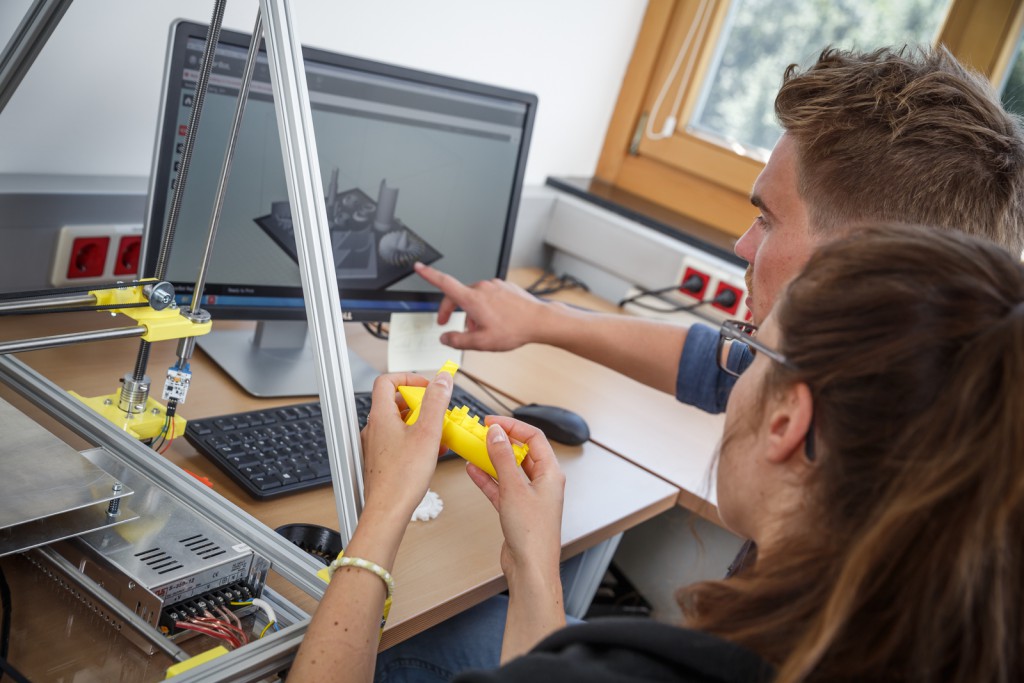The growing curiosity of researchers, students, innovative start-ups and industrial enterprises regarding generative manufacturing methods, the availability of innovative 3D printing technologies, as well as a clear trend towards establishing 3D printing laboratories at US-American universities combined to arouse the interest of researchers working at the Alpen-Adria-Universität (AAU) Klagenfurt to study the subject of 3D printing and the resulting opportunities in detail.
The original and ongoing aim is to offer students from all AAU fields of study low-threshold access to new technologies. As a result, individual teaching units are held in the 3D laboratory, business models for products printed with 3D technology are developed, and innovation strategies are discussed in connection with 3D printing. Commencing in the winter term of 2016, the AAU offers a course on Rapid Prototyping using 3D printing. A further cooperation effort currently being developed involves close collaboration with schools.
In addition to being included in the teaching program, it is also intended to integrate the topic “Rapid Prototyping” more extensively in research projects in the future.
Smart Labs Carinthia is also open to persons from outside the university. The possibility to purchase 3D printing services is expected to appeal to founders in particular. Especially during the start-up phase of a business, it is frequently necessary to print prototypes and small quantities of individual 3D parts. It is anticipated that the services of the laboratory will support the founding stage with relevant know-how.
Within the scope of the “Rapid Prototyping” project, researchers surveyed the status quo of existing FabLabs or Makerspaces in Austria. The evaluation followed the principle of best practice. There are currently 28 such establishments in Austria, as the map detailing all listed laboratories shows:
Map showing all laboratories within Austria including WTZ Süd
(No responibility is taken over for links to mentioned laboratories and the contents of linked sites.)
In addition, researchers also recorded the necessary process steps that must be taken when setting up a laboratory of this type.
The following steps are required in order to set up a laboratory:
- Initial situation
- The vision developed by Smart Labs Carinthia
- Fields of application
- Objective
- Resource planning
- Investments
- Team
- Calculation model
- Opening hours
- Offer
- Documents
Pictures: ©Alpen-Adria-Universität Klagenfurt
Written by: Alpen-Adria-Universität Klagenfurt, GHB
on: 21/06/2016

